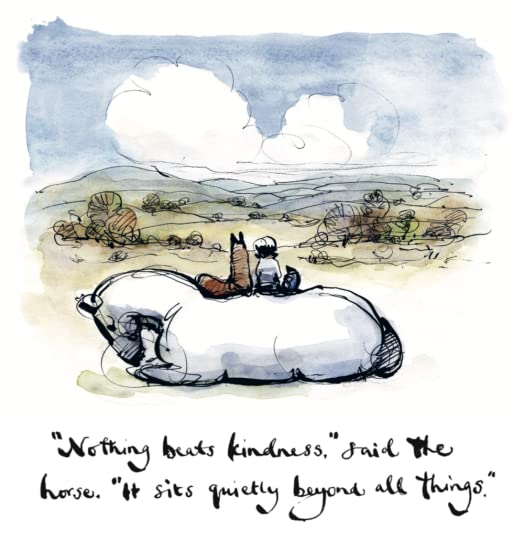The Boy, the Mole, the Fox and the Horse by Charlie Mackesy, also in Spanish, El niño, el topo, el zorro y el caballo: A philosophical fable, part graphic novel, part inspirational light in the deep, deep, dark forest of these uncertain times.
Find it in Graphic Novel Fic MAC; Available in English and Spanish.

